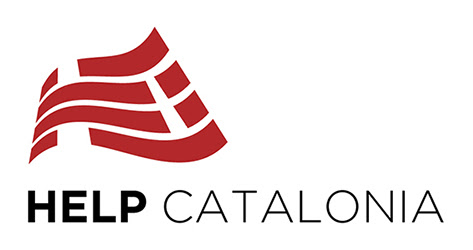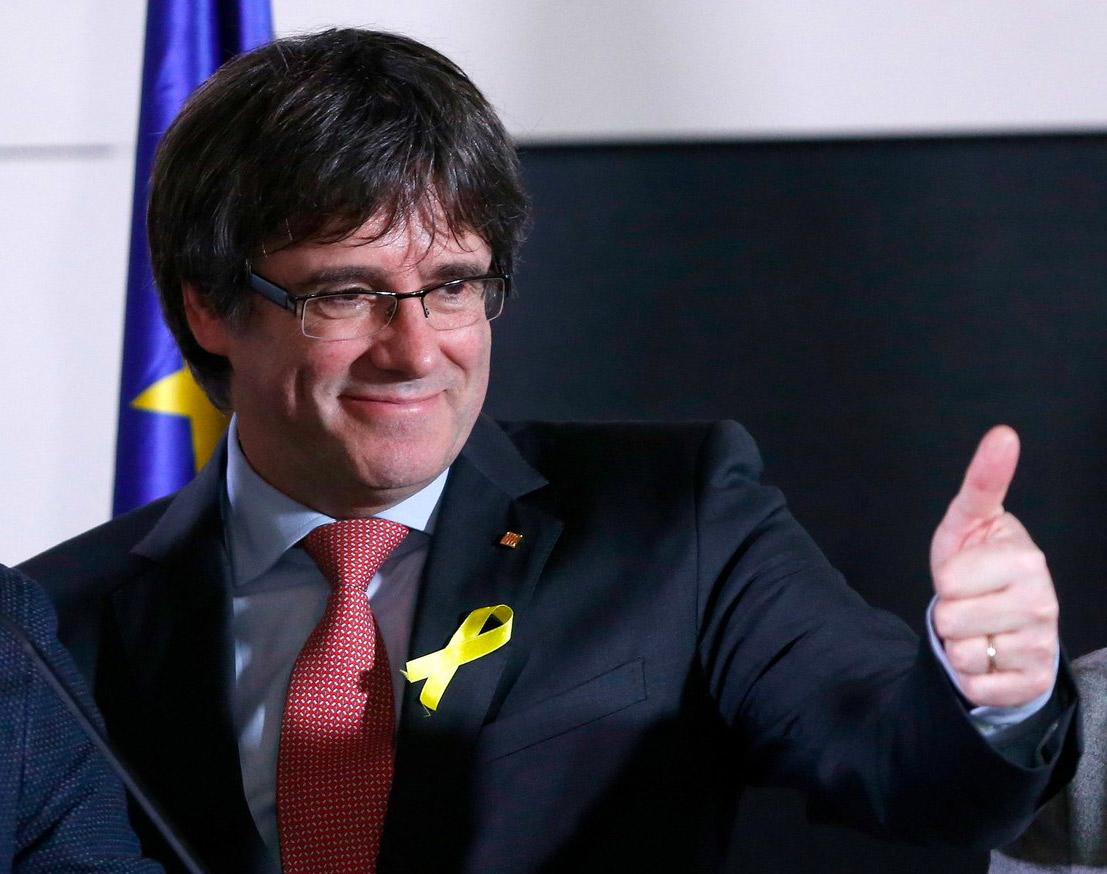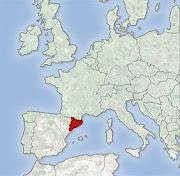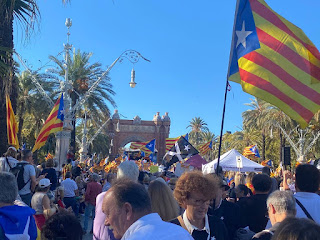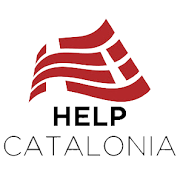French
CONTACT
News Archive
Most Viewed Posts
-
Amidst great indifference, many Spanish unionists celebrated Spain's success in the soccer Eurocup 2012 i...
-
In 2006, Catalans approved in a referendum a new Statute of Autonomy —the general law that regulates its self-government within the Kingdom...
-
European Parliament vice-president, Spanish nationalist Alejo Vidal Quadras, asked the Spanish prime minister, Mariano Rajoy, that he choose...
-
South Azerbaijan Civil Rights Movement in Iran get idea of "Catalan is not Spain" and inspired by it. So, as supporters of F.C. ...
-
Yes, they do. Even after so many years of repression and massive migrations from Spain, the majority of Catalans still would vote for inde...
-
Supporters of former Spanish dictator General Franco gave fascist salutes in Madrid as voters in Catalonia voted in an independence refer...
-
Parents, teachers, civil society and Catalan government all oppose Spanish Education minister Wert's education reform. Catalan e...
-
In 2009, the village of Arenys de Munt erected a monument in remembrance of the beginning of the democratic process towards independence. It...
-
The success of the pro-independence rally on September 11 th in Barcelona has sparked off a violent reaction from the different social str...
-
We reproduce Dr. Nico Krisch's piece on Catalonia's independence originally published in the European Journal of International La...
2013/11/13
The Parliament of Catalonia
French
2019/02/22
Jordi Turull: "The people of Catalonia are not sheep, they are not militarised people to whom you can just say: Go here, go there!' It's not like that"
The Catalan Minister Jordi Turull begun his intervention in the trial of the process at the High Court rejecting the formulation of many of the questions of the prosecutor Jaime Moreno, and has added that in the written accusation of the Prosecutor the pro-independence process appeared suddenly:
"This process, in its written accusation, is based on the fact that one day the light came on and a blank book fell on the table. Just like that! That just doesn't stand up anywhere."
The minister stated that the main part of this narrative is missing: a pro-independence movement which he stated, "goes from below upwards":
"The people of Catalonia are not sheep, they are not militarised people to whom you can just say: ‘Go here, go there…!' It's not like that. The people of Catalonia, whether pro-independence or not, whether from the extreme right or extreme left, from the centre,... they have criteria. We are in the 21st century. I say this because we hear of the people in a way that totally misunderstands Catalonia and the pro-independence movement. The pro-independence movement in Catalonia goes from below upwards."
2014/10/21
Former Spanish PM Felipe González takes into consideration the suspension of Catalan autonomy
2013/01/13
You Can't Argue with the Facts
A taxation deficit occurs in a particular territory when taxes raised and collected within this area overcome the investments carried out by the State in the same territory. Since 1986,
This rail infrastructure connects
Multinational companies, congresses, and fairs choose their location according to ease of connection.
This harbor is of vital importance for the development and growth of
The centralized Spanish airport system is conceived to turn
An agreement was signed some years ago to improve wiring systems, security measures, platforms, etc. of the rail systems in metropolitan and surrounding areas in both
Also known as Road of Death, it accounts 15 to 20 deaths per year. Back in 2006 it was agreed to double its capacity in order to carry up to 30,000 vehicles per day. Those construction works are not finished yet and the current Spanish government has recently cancelled any further construction. Landowners have not received any compensation either. While
According to the Additional Provision 3bis in the recently passed Catalan Statute of Autonomy, the governments of
Companies having their headquarters located in
None of the western democracies consider armed supervision of its political power except in
How can a court cancel or modify any fundamental law if it is up to the people who have made good such deal with their votes? This court sets itself automatically as a political tool. This politicized court is not competent to cancel or modify any law enacted and passed by a referendum. The only desire behind such judgment and ruling can only be to stop Catalan ambitions. We have lost trust on this body, it does not generate any confidence. It only guarantees the centralized power.
We should not forget all the cheating, deceptions and falsehoods that were thrown around by the centralist parties in
All different Spanish governments have always argued that all kinds of negotiations should take place in peaceful, democratic conditions—without any threat of violence involved. Now that 83% of Catalans are peacefully and democratically requesting a referendum, the answer is that it is not legal. There will always be an excuse against
2018/11/13
Bill for abolition of the monarchy to be taken to Catalan town councils
The motion's objective is to "denounce the anti-democratic activity of this anachronistic monarchy and the need to abolish it", Cervera said.
The text of the motion will adapt the bill passed on 11th October in the Catalan chamber. That bill also censured king Felipe for his stance on and involvement in the Catalan conflict. The Spanish government has already announced its intention to take the bill to the Constitutional Court. Cervera also said they'll carry out a joint meeting with the Catalan Association of Municipalities (ACM) to demonstrate "unity" to realise the Catalan Republic.
2014/07/30
Former Catalan President Jordi Pujol gives up all his benefits and will face a parliamentary committee
 |
| President of the Catalan Government MHP Artur Mas |
2012/09/09
Unfair Play Against Catalonia
__________
_________
_________
2022/10/02
60,000 mark the fifth anniversary of the 1-O, the self-determination referendum held on 2017 and deepens the ERc's sinking
The event organized in Barcelona this Saturday to mark the fifth anniversary of the 1-O, the self-determination referendum held on October 1st, 2017 was attended by 60,000 people. What was most evident was the vast divide separating the thousands of
people who gathered in front of the Arc de Triomf in defence of the
validity of the referendum, and Catalonia's Republican Left (ERC) political leadership that has abandoned the 1-O.
In fact the dismissal of vice president Jordi Puigneró (Junts) by president Pere Aragonès (ERC) only three weeks after the Diada demonstration from which the ERC leadership absented itself, is already clear. The first signs were given at the very start of the event, when it was recalled that the Spanish state's repression had, among other consequences, led to the situation of there being five people in exile who were unable to come personally to Barcelona. The names of Lluís Puig, Clara Ponsatí and Toni Comín, from the Junts space, received loud applause, and this multiplied when the name of Carles Puigdemont was read, prompting a shower of praise and chants of "president". Only one of the figures in exile was criticized: the name of the ERC general secretary, Marta Rovira, provoked jeers among the public.
The ERC space also could not avoid the crowd's derision, a few moments later, when senior ERC figure Carme Forcadell went on stage. During her speech, calls of "traitor" and "out" were heard among the public: "Many of you are angry, disappointed and disillusioned. I understand that and I share it.", she said. But it 's too late. Her party is sinking day by day.
Carles Puigdemont and the ANC get all the warmth
Carles Puigdemont, the president-in-exile, who spoke live via telematic means, was enthusiastically welcomed by an audience that, for long periods, remained silent listening to his words. A tranquility that was broken after several messages from Puigdemont, such as his "immense thanks" to the citizens who made the 1-O possible, his warning that those "delusional undertakers" should give up any hope that the people will forget about independence, and his defence that "there is no need to repeat" any referendum because the 2017 one is still valid, as opposed to the "clarity" proposal of the Catalan president, Pere Aragonès. Even his appeal for the unity of the independence movement was well received: "The only table to which we must chain ourselves is the dialogue table between the siblings of Junts, ERC, the CUP, Òmnium and the Assembly". Unlike the other speakers who spoke along these lines, Puigdemont was applauded.
The Catalan National Assembly (ANC), as well, was welcomed with open arms. In her speech, Dolors Feliu saw how her strategy, marked by the desire to put an end to the dialogue table with the state and start a new democratic attack in the short term, was strongly applauded. Her criticism of the "immobility" of the parties was warmly received by the public, as well as her call to "open new paths". Thus, the ANC president returned to the threat of a early election and a civil list, bypassing the parties, if the Catalan government does not comply with its pro-independence mandate.
Appart from the Barcelona's event there were meetings all over Catalonia and a rally in Girona where hundreds burned the ERC's effigy portrait and a Spanish banner.
2019/05/13
Carles Puigdemont: “Our commitment is to join other peoples to fight for freedom, and specifically the right to self-determination”
The Catalan president Carles Puigdemont clarified today, in a press conference, from Waterloo that “In the European rule of law there is no doubt about my immunity and my right to [become] a MEP, not only in my case, but also for ministers Comín and Ponsatí. I hope the Spanish authorities respect the European rule of law,” he said. “One of our goals is to defend European democracy against authoritarianism, populism, xenophobia and state nationalism, which is increasing all around Europe.”
“Our commitment is to join other peoples to fight for freedom, and specifically the right to self-determination.” In relation to which group Together for Catalonia (JxCat)would be assigned to, Puigdemont said that he must "respect human rights and the right to self-determination." Excludes the possibility of making the request to the ALDE, liberal, group. The liberal group under the Flemish Guy Verhofstadt (fiercely opposed to Flanders independence) has fought Catalan democratic demands,
2018/12/03
Jailed Ministers Quim Forn and Josep Rull join the hunger strike
Forn and Rull joined former minister Jordi Turull and former activist and now MP Jordi Sànchez, who are now on their third day without any food. This means four of nine jailed leaders are now on hunger strike.
They announced to prison authorities that they are on "indefinite hunger strike." The lawyers of the politicians explain that they want to highlight that Spain's Constitutional Court is "blocking" their cases reaching the European Court of Humans Rights (ECHR) by delaying decisions on their appeals. The European Court of Human Rights only accepts for consideration cases which have gone through the whole national judicial path.
Forn, a fomer Home Affairs minister, has been in pre-trial jail for more than a year. Rull, who was minister of Territory, spent a month in jail in 2017 and entered pre-trial prison again in March last year.
